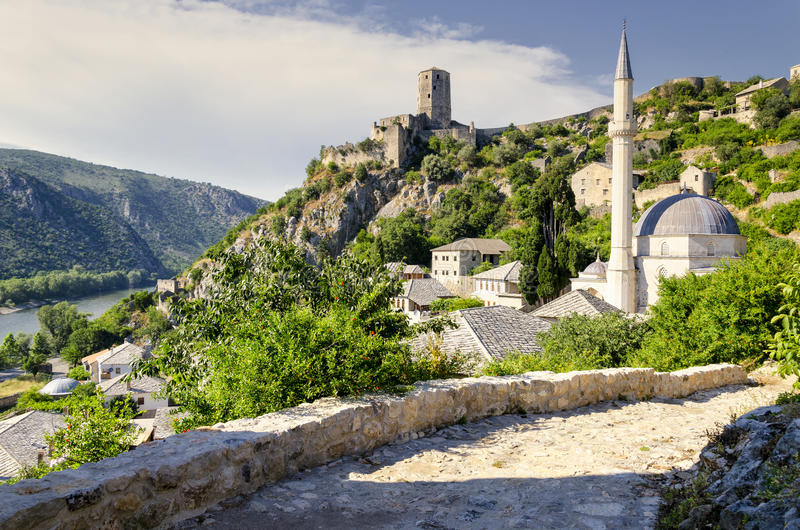Bosnia and Herzegovina as a state exists very little. However, the unusual history of the religion of Bosnia and Herzegovina began to take shape back in the fifteenth century, when most of Bosnia became part of the Muslim Ottoman Empire. In the article we will talk more about the religious specifics of this state.
Bosnia and Herzegovina
Recall which state we are talking about. Now Bosnia and Herzegovina is located partly on the Balkan Peninsula, partly in Europe. Its western and northern parts border Croatia, and in the southeast - with countries such as Montenegro and Serbia. The capital of the state is the city of Sarajevo. Throughout its history, it was part of various associations and kingdoms. The basis of the culture of Bosnia and Herzegovina is Slavic, but with the course of history, the features of Islamic culture layered on it, forming a unique combination of its kind. The influence of the East, in particular, Turkey, in everyday life is especially noticeable. Why this happened and what religion in Bosnia and Herzegovina, we learn from the rest of the article. This is truly an unusual occurrence.
The history of the formation of the religion of Bosnia and Herzegovina
So, until the ninth century, the vast majority of Bosnians were pagans, although Christianity was adopted a little earlier on the territory of Herzegovina. Starting in the 930s, Christian missions from Constantinople and from Rome began to come to Bosnia. The country is constantly in the composition of different states, as a result, part of it becomes Catholic, and part - Orthodox. Historically, it was distributed as follows: the northern lands were subordinate to Rome, while the southern lands were subordinate to the diocese of Constantinople.
Towards the end of the fourteenth century, Turks began to appear in the country. Attempts to send a crusade to recapture the land failed. Mass conquests continued in the fifteenth to sixteenth centuries, they were accompanied by the conversion of the local population to Islam. The Turks proposed the actual equation of the Slavic nobility with the Muslim in case the former converted to Islam. They were offered tax exemptions and other benefits. As a result, many nobles are forced to take this step in order to maintain their privileges and power. However, no less people remained Christians. Thousands of them became slaves or were driven into the Janissaries - units of the Turkish troops, where Christian soldiers served. So, the religion of Bosnia and Herzegovina, the church began to change dramatically. A large role in the formation of Islam in the country was played by Sufis.

As a result, at the turn of the 16-17th century, the number of Muslims in the country was about forty percent. In the future, the pace of Islamization of the population slowed down. In the 19-20 century, the number of Orthodox and Muslims was approximately the same - the same forty percent, and twenty percent were Catholics.
What religion is in Bosnia and Herzegovina now?
Currently, the religion of citizens of Bosnia and Herzegovina is determined in most cases by their nationality. Serbs remain mostly Orthodox, Croats remain Catholics. Those Serbs and Catholics who profess Islam call themselves Muslims. They are Sunni Muslims, but a Shiite community exists in the country.
So, Bosnia and Herzegovina is one of the few countries where Slavs practice Islam. Most of them can hardly be called devout - most often they visit the mosque from time to time, from time to time, or for important religious ceremonies. This was definitely influenced by the country's communist past. However, there is such a tendency: religious norms begin to be executed by young people with more enthusiasm than before. Religion becomes for them a way of self-identification. A significant proportion of women, especially in rural areas, have adopted Muslim clothing standards. The local Muslims, as is customary in Islam, are very tolerant. However, in fact, it was the religion of Bosnia and Herzegovina that became the main factor that unleashed the tragic war of 1993-1995.
Religion Status
According to the Constitution of the country, each resident can practice any religion. Thus, there is freedom of religion. Religious education exists in schools and colleges, in some cases it may be compulsory for everyone, but this happens quite rarely.